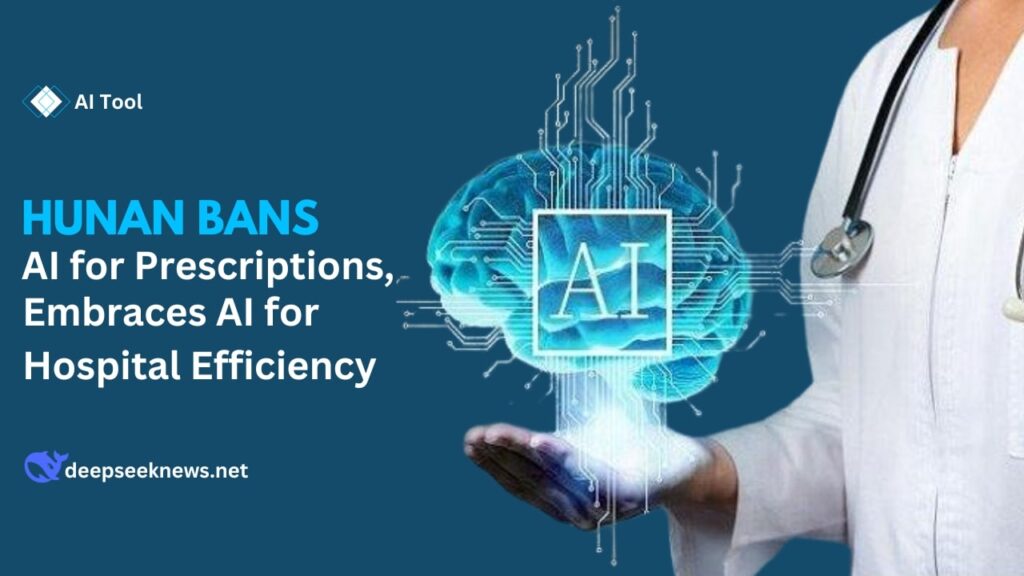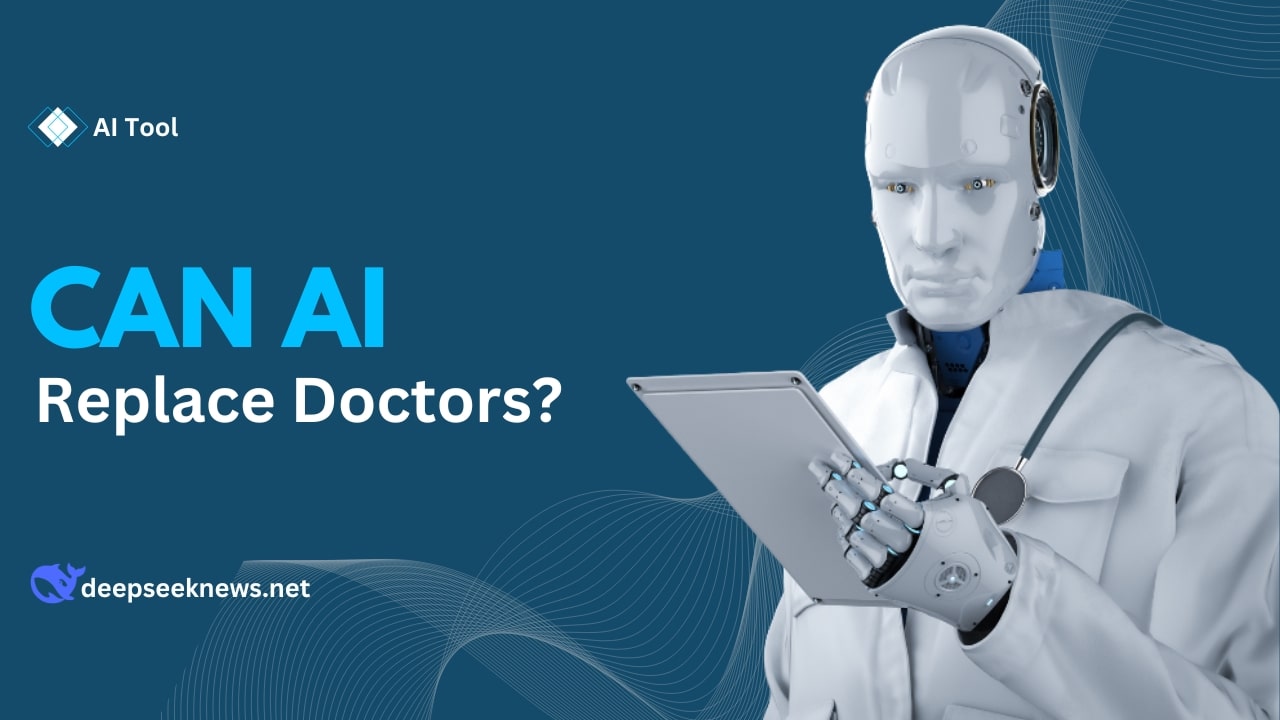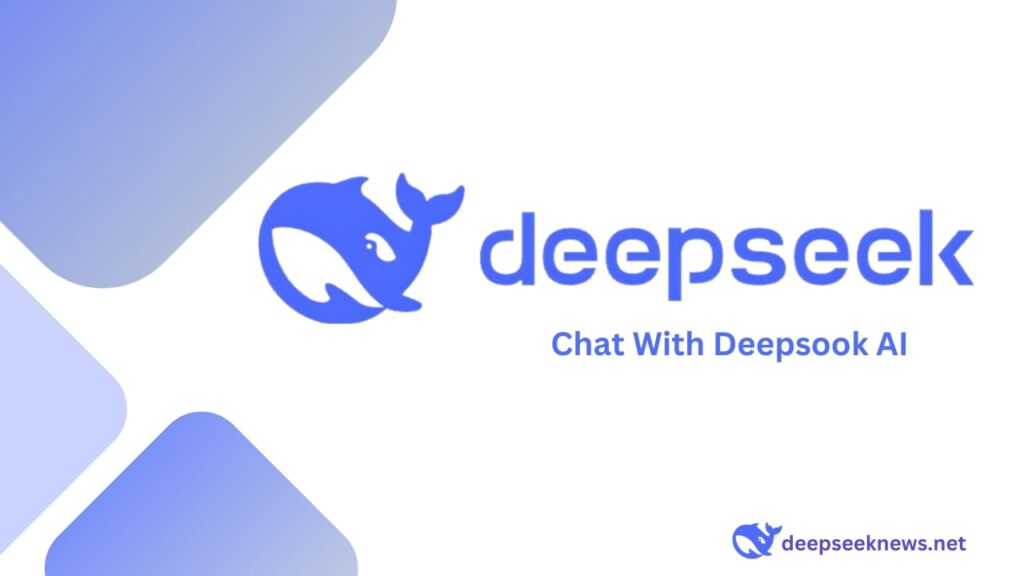Health authorities in Hunan province have banned the use of artificial intelligence (AI) for writing prescriptions. All e-prescriptions must now come from certified physicians under the province’s medical insurance system. This decision comes amid growing concerns about AI-generated medical advice, with platforms like DeepSeek raising discussions on the role of AI in healthcare.
New Rules for Prescriptions
A recent notice from the Hunan Healthcare Security Administration requires all medical institutions to connect to the provincial electronic prescription platform. This ensures prescriptions are traceable and processes are transparent.
Internet-based hospitals are also prohibited from using AI-generated prescriptions. They must integrate their systems with the provincial medical insurance center. Physicians must conduct thorough consultations with patients or their families before issuing prescriptions.
Double-Check for Safety
To improve medication safety, pharmacists must perform a “dual-review” process. First, medical institution pharmacists verify the prescription. Then, retail pharmacists conduct a second review to ensure it’s authentic, appropriate, and compliant.
AI’s Role in Hospitals
While AI is banned for prescriptions, hospitals in Hunan are actively leveraging AI technologies like DeepSeek to enhance efficiency in research and administration. Experts are amazed by DeepSeek’s groundbreaking AI research, which has paved the way for its integration into medical institutions.
Three hospitals in Hunan have successfully implemented DeepSeek: People’s Hospital of Hunan Province, Hunan Chest Hospital, and Chenzhou First People’s Hospital.
How Hospitals Use DeepSeek
On February 16, People’s Hospital of Hunan Province integrated DeepSeek into its office automation system. This streamlined tasks like approvals, scheduling, and document processing.
As of last week, DeepSeek had processed 4.27 million requests, with an average of 1,237 daily users among medical staff. It’s commonly used for interpreting test results and providing medication guidance.
In research, DeepSeek helps medical staff access the latest findings and extract key information from medical literature, speeding up research processes.
AI in Clinical Practice
At Hunan Chest Hospital, DeepSeek assists in decision-making, particularly in optimizing tubeless thoracic surgeries. Its Medical Research Assistant feature provides precise recommendations based on extensive medical knowledge. China’s AI innovation: DeepSeek redefines the game in multiple industries, including healthcare.
Shi Zili, director of the hospital’s surgery department, compared DeepSeek to a mentor that helps “correct your homework,” improving clinical accuracy.
Can AI Replace Doctors?
The increasing use of AI in hospitals has raised concerns about whether it could replace human doctors. However, medical professionals stress that AI is merely a tool and not a substitute. DeepSeek’s role in healthcare is similar to its applications in finance, where AI in finance presents opportunities and challenges but ultimately requires human oversight.
AI can assist with diagnostics and treatment suggestions, but the final decisions rest with physicians, who must consider each patient’s unique needs. Lu Xi from People’s Hospital of Hunan Province highlighted that AI still has limitations in handling complex cases and tailoring diagnoses to individuals.
The Future of AI in Healthcare
While AI continues to transform healthcare, human doctors remain irreplaceable. AI can enhance efficiency and accuracy, but ultimate responsibility lies with medical professionals. DeepSeek and other AI technologies are helping hospitals operate more effectively while ensuring patient safety. DeepSeek and Unitree Robotics are among China’s top tech innovators, showcasing how AI is reshaping industries globally.
Hunan’s new rules strike a balance—limiting AI in prescriptions while embracing its potential to improve hospital operations and research. This approach ensures patient safety while leveraging technology for better healthcare outcomes.






